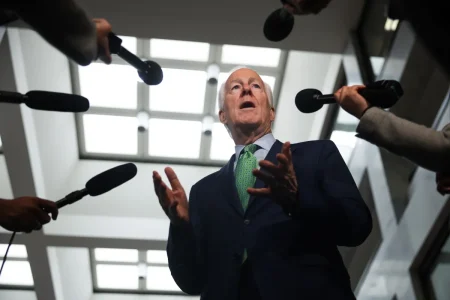Brian Kelly’s Bold Move: Investing in a New Era for LSU Football
In a surprising demonstration of commitment to LSU’s football program, head coach Brian Kelly launched his “Million Dollar Match Challenge” this offseason, personally contributing his wealth to bolster the team’s 2025 Transfer Portal class. This unconventional approach represents more than just financial investment—it symbolizes Kelly’s determination to transform a talented but inconsistent team into a disciplined, championship-caliber program. As the Tigers look to rebound from a disappointing 8-4 season, Kelly’s strategy focuses not just on acquiring skill but on reshaping the team’s mental fortitude.
The investment comes with clear expectations. According to Geaux247’s Glen West, Kelly is seeking “more adults in the room”—players who can maintain composure and execute under pressure. This desire stems from LSU’s pattern of late-game collapses during the 2024 season, including painful defeats to USC, Texas A&M, and Florida, alongside a blowout loss to Alabama. These performances revealed a concerning trend: a team with tremendous talent but lacking the mental toughness to close out challenging games. Kelly articulated this vision during a recent press conference, explaining that building a successful program requires more than just talent acquisition—it demands assembling players with the psychological makeup to handle adversity, sudden momentum shifts, and high-pressure situations.
Kelly’s roster-building philosophy for 2025 reflects a three-pronged approach: securing veteran players with proven production, targeting future NFL talent, and most crucially, bringing in mature individuals who understand and embody the program’s championship aspirations. This strategy acknowledges that LSU’s shortcomings weren’t primarily about physical ability but about mental resilience and leadership. The substantial NIL investments made by Kelly and the donor base are specifically targeted at players who can not only perform on the field but also foster a “businesslike mentality” throughout the locker room—a quality the coach found lacking in critical moments during the previous season.
The stakes for Kelly couldn’t be higher. After three seasons at the helm, his tenure has followed a concerning trajectory—starting strong but gradually losing momentum. His first season in 2022 showed promise, but subsequent campaigns have fallen short of expectations. Now, questions about Kelly’s ability to maintain control and direction of the program are growing louder. By personally spearheading this financial initiative and publicly acknowledging the need for more mature leadership within the team, Kelly has effectively tied his future at LSU to the success of this new approach. If the highly compensated transfers can’t unite the locker room and deliver results, it would suggest a fundamental incompatibility between Kelly’s leadership style and LSU’s program.
The unprecedented nature of Kelly’s financial commitment highlights both the immense pressure he faces and the evolving landscape of college football. In an era where NIL deals and the transfer portal have revolutionized recruitment, Kelly has embraced these changes with a specific vision—using these tools not just to accumulate talent but to cultivate character. The players brought in through this initiative weren’t selected solely for their on-field production; they were identified as individuals who could help establish a culture of accountability and resilience. This represents a nuanced understanding that in modern college football, building a championship team requires addressing both tactical weaknesses and psychological barriers.
As LSU prepares for 2025, the program stands at a crossroads. The talent level is undeniable, the financial investment significant, and the coaching staff’s vision clearly articulated. What remains to be seen is whether this bold strategy will translate into the on-field discipline and mental toughness that was missing in critical moments last season. For Brian Kelly, this represents perhaps the defining challenge of his coaching career—proving that he can adapt to the changing landscape of college football while maintaining the core principles that have made him successful throughout his career. If successful, the “Million Dollar Match Challenge” could become a blueprint for program building in the NIL era; if not, it may signal the end of Kelly’s time in Baton Rouge and force a reevaluation of how modern college football programs should be constructed and led.















